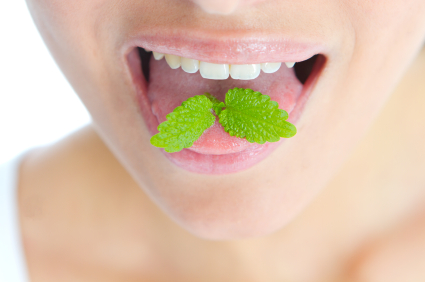Halitosis – causes and treatment

Bad breath is one of the most common reasons that people visit the dentist, and for most people it is something that can be fixed with simple hygiene and perhaps a change in diet.
The tongue is one of the main causes of halitosis. Its anatomy makes it a perfect environment for flourishing bacteria, which can produce foul odours during their natural metabolism. Cleaning the tongue with a dedicated brush is one of the easiest ways to solve this problem, though it is rarely practised.
A bad taste in the mouth can often signify a dental problem and is usually coupled with an unpleasant smell. The cause of this is most likely due to a decaying tooth and/or a pus-filled abscess – both of which contain bacteria, necrotic tissue and debris.
These causes of bad breath can all be solved by the following:
- Cleaning the tongue regularly (along with the rest of the teeth and mouth)
- Resolve any gum disease by visiting a hygienist
- Fix any areas of decay and other dental disease by seeing a dentist
- Chewing gum can temporarily mask bad breath, but will not help eliminate the cause.
Lots of people (and their partners!) complain of the unpleasant, but common, phenomenon known as ‘morning breath’. At night, the mouth is less active and saliva production decreases by up to 90%. Without the mechanical washing action of saliva and the antimicrobial products it contains, the amount of bacteria (and consequently bad smells) increases. This can be decreased by cleaning the mouth efficiently each night.
However, for some people bad breath is a side-effect of a systemic condition. Some types of cancer, liver failure, diabetes and various infections have all been linked to foul breath. In these cases, treating the underlying cause and managing the bad breath symptomatically with chewing gum and mouthwash are the most viable options. Some medications have also been known to dry out the mouth, causing bad breath; saliva substitutes and stimulants are often called for in these cases.
Below are some substances known to increase and decrease the chances of having bad breath:
| Good Products | Bad Products |
| Chewing gum – chewing gum can dislodge food from teeth, remove bacteria, smell nice and encourages saliva production, which helps flush bacteria from the mouth. | Alcohol and coffee – both of these dry out the mouth, inhibiting it from naturally washing away bacteria. |
| Water – drinking water helps flush the mouth and reduces the amount of bacteria and food debris. | Onions and garlic – notorious causes of bad breath caused by lingering sulphur gases. |
| Some herbs – herbs like parsley release oils that help freshen breath. | Smoking – not only does smoke itself smell terrible, but the act of smoking dries out the mouth, restricting it from cleaning itself. |
| Fruit and vegetables – vitamin C-containing products can help reduce the chance of gum disease, a notorious cause of bad breath. | Protein-based foods such as meat and dairy – don’t stop eating these products, but be aware that they break down into amino acids, which can linger in the mouth and cause bad smells. |

